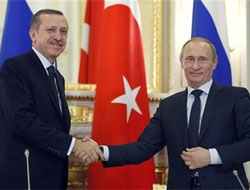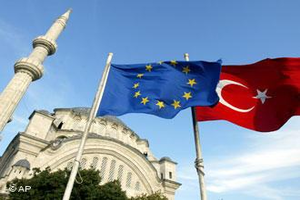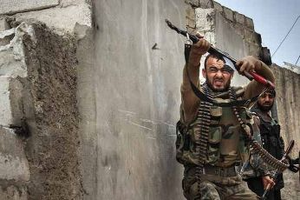What the Columnists Say
The Taksim/Gezi Park protests, and their violent dispersal by the police in May-June, continue to cast a deep shadow over the political life in Turkey, and the political commentaries reflect this fact. Notably, the protests and their handling by the AKP government has provided new ammunition in the ongoing power struggle between the ruling AKP and the movement of the Islamic preacher Fethullah Gülen, deepening their mutual distrust. Mehmet Baransu in the daily Taraf reports that many in the leadership of the AKP think that the Gülen movement was behind the Gezi protests. Meanwhile, it is noted that the conservative business community in Anatolia, which has been instrumental in bringing the AKP to power, is concerned that the confrontational policies of the government – at home and abroad -- are going to harm the stability and economic development of Turkey. Commenting the verdicts in the Ergenekon trial, Murat Belge, a leading liberal intellectual, expresses doubts that the trial has touched anything but the “tip of the iceberg”, while Fuat Keyman, another liberal commentator, speculates that Prime Minister Erdoğan must in fact be deeply troubled by the verdicts that contribute to the perception abroad that democracy in Turkey is in retreat.
The Turkey Triangle: Ankara, Moscow, Tehran
by Richard Weits (vol. 6, no. 7 of the Turkey Analyst)
Turkey has been using its energy and economic links with Russia and Iran to manage their political differences. Turkey’s relations with Russia improved considerably during the past decade, but those with Iran saw only a modest upturn due to enduring differences over regional security and religious-ideological principles. But in the past year, Turkey’s diverging response to the Arab Spring and especially the Syrian Civil War has strained both partnerships. No one talks anymore of an emerging Turkey-Iran-Russia axis in the heart of Eurasia.

Turkey-EU Relations Heat Up
by Richard Weitz (vol. 6, no. 5 of the Turkey Analyst)
After years of stalemate, recent months have seen renewed efforts to secure Turkey’s accession to the EU. French President François Hollande has adopted a more favorable position regarding accession than his predecessor. Following his election in 2012, Hollande’s administration advocated opening some of the eight chapters of the accession talks that were closed. Other EU officials have expressed concerns about the EU needing Turkey more than vice-versa. German officials have also adopted a more positive attitude towards Turkey’s accession drive. Meanwhile, Turkish officials are making moves, such as threatening to abandon the EU and seek membership in the Shanghai Cooperation Organization, presumably to give Ankara more leverage in the accession negotiations.

What It Will Take to End the Conflict with the Kurds: Can Turkey Transcend Turkishness?
by Halil M. Karaveli (vol. 6, no. 04 of the Turkey Analyst)
A settlement of Turkey’s Kurdish issue requires that the Kurds are satisfied and that the Turks are persuaded. Satisfying the demands of the Kurds will necessarily bring about a redefinition of the identity of Turkey. It will above all reverse the traditional role of the Turkish state, which historically has sought to regiment society; it would enshrine a whole new principle, making it the duty of the state to respect societal diversity and uphold societal freedom. Prime Minister Recep Tayyip Erdoğan may consider deleting references to Turkishness from the constitution, and to allow the Kurdish identity a greater space, but it is less clear that he would also agree to dilute the state’s and his own power.

The Arab-Kurdish Battle in Syria: Implications for Turkey's Standing
by Veysel Ayhan (vol. 6, no. 4 of the Turkey Analyst)
The battle over the Syrian town Ras al-Ain on the border to Turkey and the recent cease-fire agreement between the Syrian opposition and the Kurdish Democratic Union party (PYD) have major implications for Turkey, affecting its relations with the Kurds in Syria, and with parts of the opposition. The battle over Ras al-Ain has not only resulted in the Kurds seeing Turkey as their enemy, but has also led some Syrian opposition leaders to question the role that Turkey plays in their country. The standing of Turkey has been negatively affected as the notion that Turkey could be of assistance in ending the intensified ethnic, religious or sectarian strife that can be expected after the downfall of al-Assad has been dealt a blow at Ras al-Ain.








